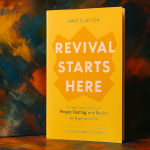I’ll be honest: I’m a fairly well-informed citizen who believes that my faith should inform the way I think and act in the public square. Add to this that some of my best friends work in and around politics, on both sides of the aisle, as researchers, aides, scholars, professors, and public servants. But I still find that I’m often confused about politics — especially when faced with reasonable arguments and God-fearing people on both sides of the issue.
One organization I respect highly is the Center for Public Justice, headquartered in Washington, D.C. It’s a think tank that manages to explore and publish on a Biblically-informed perspective on government and politics while avoiding becoming politicized — no small feat!
Stephanie Summers is the CEO of the Center, and over at The High Calling, she talked a little about what the Center does and how they think about their work:
Many today still dress up party platforms with a bit of scripture. But more dangerously, many have abandoned the political enterprise altogether. For some this abdication of responsibilities is based on poor biblical interpretation (Jesus wasn’t involved with the State, why should I be). For others, legitimate frustration with government gridlock and uncivil discourse has led them to embrace libertarianism, which at the very least privatizes faith to be a matter of individual piety, and at its most extreme, reduces all morality to upholding contracts between autonomous individuals. This philosophy is one that can be best described as wholly incompatible with the Gospel.
As an alternative, we’ve articulated many of our beliefs in a series of Guidelines for Government and Citizenship, which help lay the foundation for how we begin to think about whose responsibility is what, when it comes to the political order.
It’s worth checking out the piece and reading more about the Center.















